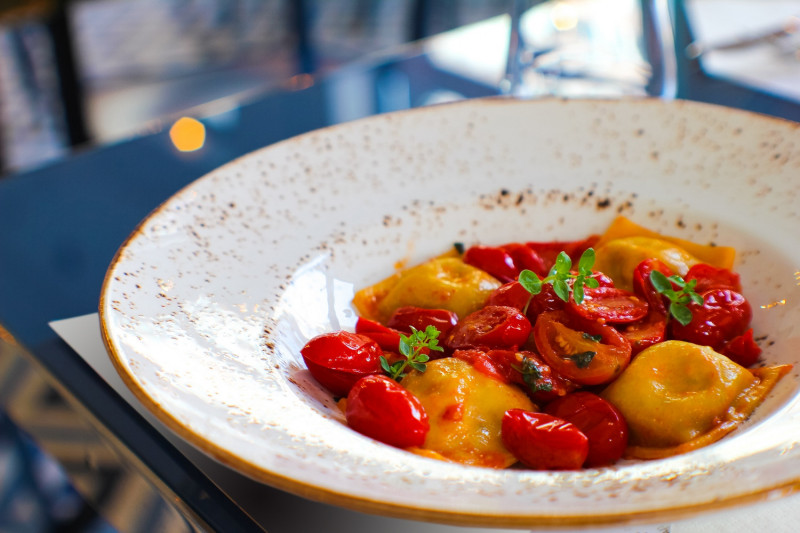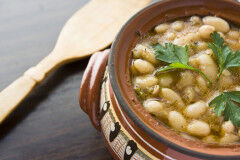
Ravioli di patate e pesto con fagiolini, pomodorini e mandorle
Fulfilling and smooth, learn the secrets of making pesto-filled ravioli. Not just a dressing, pesto is perfect inside fresh, handmade pasta too!
- ( Voto 5 su 1 recensioni )
Burton F. Kaufman:
If you've got loads of fresh basil growing in your green garden this summer, we've got a new recipe you're going to want to test out. Incorporating a classic Italian pasta sauce beloved from North to South but originating in the Northwestern part of the country, in Liguria, this dish proposes a new standard: putting your pesto inside your pasta instead of simply dressing your homemade fresh pasta with the sauce.
A novel concept, particularly in Italy where Pesto is used almost exclusively as a pasta dressing, we love the slight sweetness fresh Basil Pesto lends to a creamy potato filling. And when stuffed into a delicious fresh ravioli pasta shape, this exciting pasta option is definitely worth the try. If you love fresh basil and Green Beans with almonds in general, you're going to love preparing this fresh pasta course for your friends and loved ones - all the extra effort will be paid off with cleared plates and happy tummies!
Put those green veggies to good use this summer with this light fresh pasta recipe, and add a whole new Pasta with Green Beans, Potatoes and Basil Pesto, also known as a variation of Pasta alla Ligure, into your recipe drawer. If you're feeling pasta-friendly, don't miss all the terrific fresh Italian pasta specialities in the Recipe Index.
Find inspiration in stellar fresh pasta dishes with all different kinds of fillings and sauces, and get cracking your kitchens now! Don't forget to register for Mamablip's weekly newsletter for updates on all the exciting newest Mamablip Blog articles, recipes and other wine news from Italy.
 Ingredienti
Ingredienti

 ....assolutamente da provare!
....assolutamente da provare!






